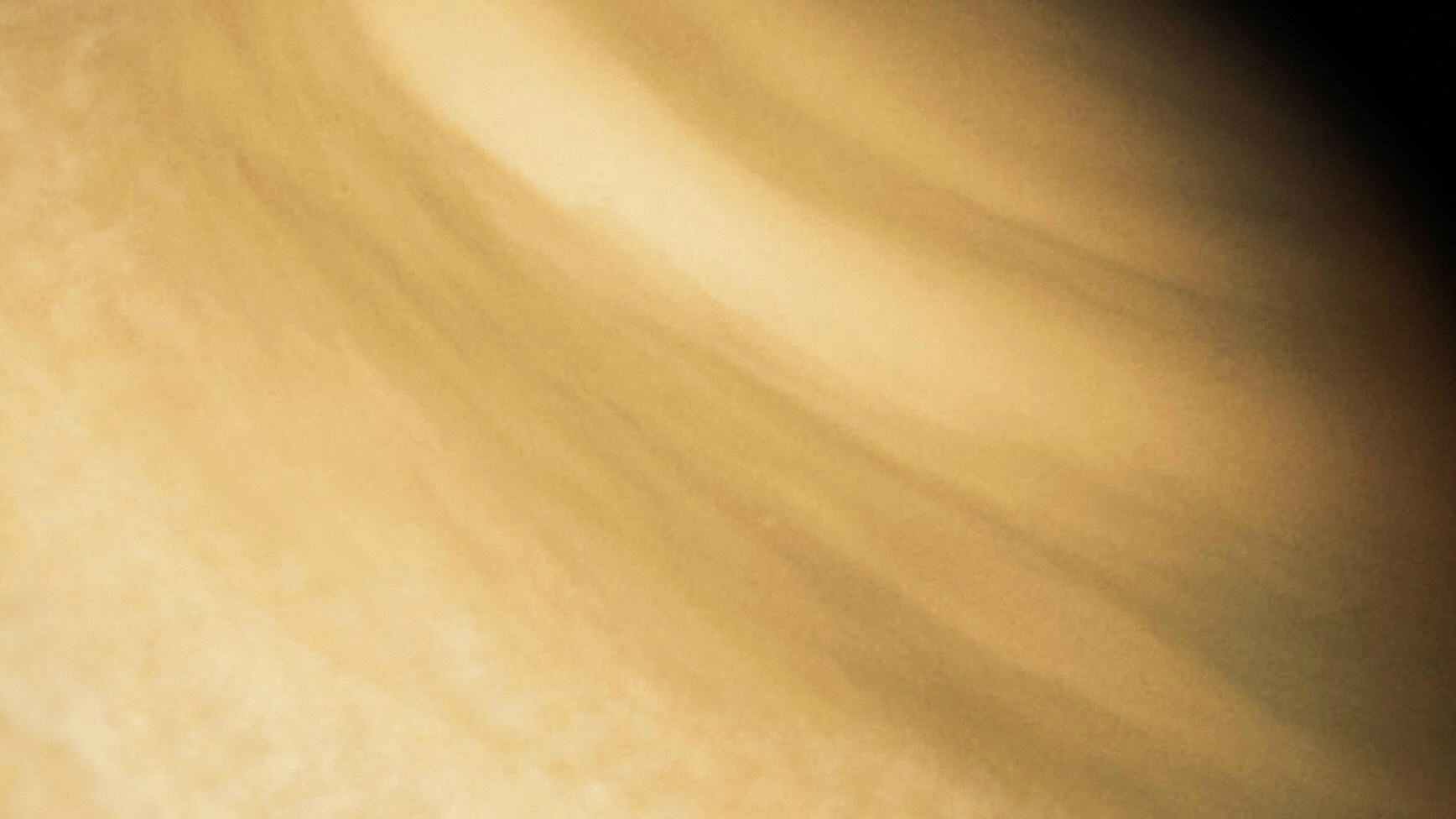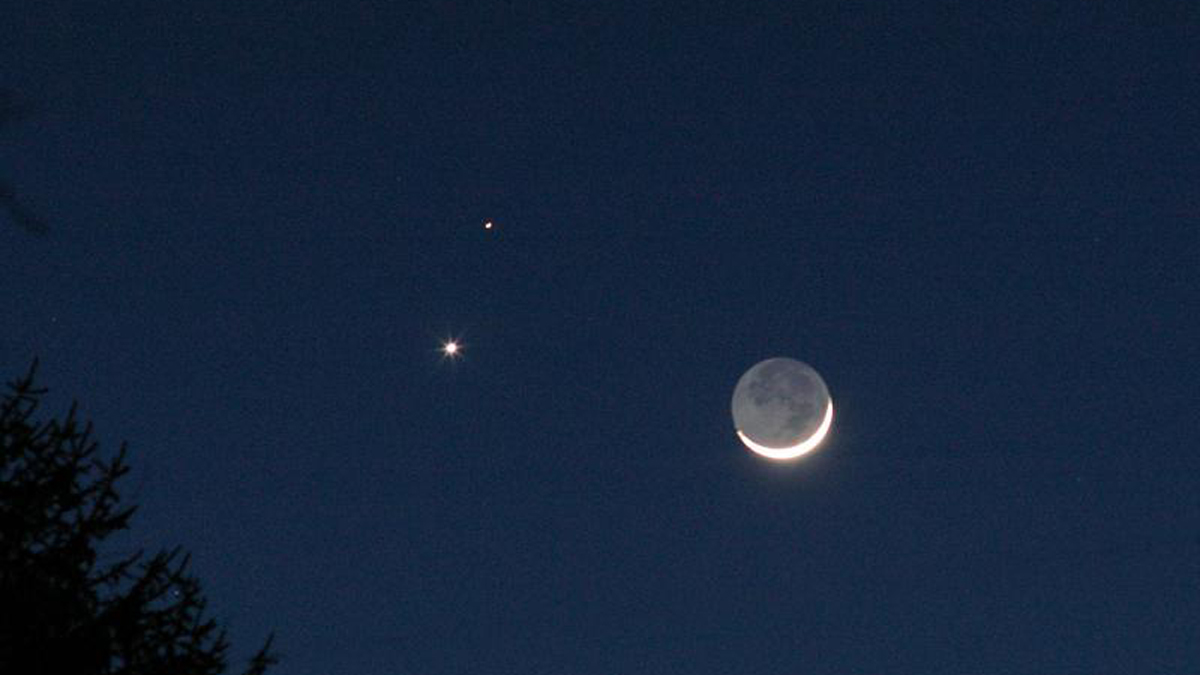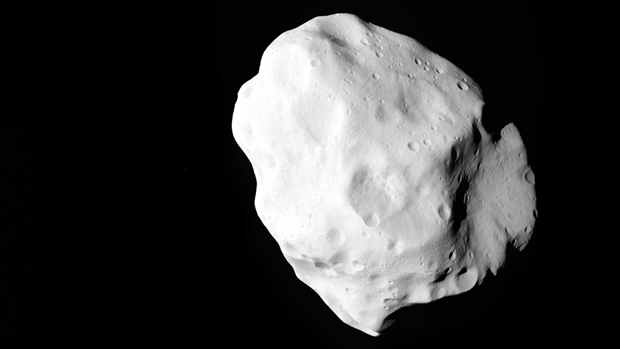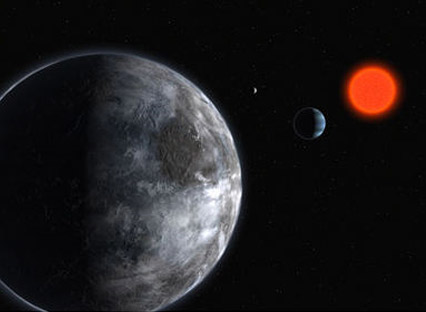Life on Venus? What we know so far
Astronomers announce ‘mind-boggling’ discovery of ‘biosignature’ gas phosphine in clouds above the planet

A free daily email with the biggest news stories of the day – and the best features from TheWeek.com
You are now subscribed
Your newsletter sign-up was successful
Traces of a highly toxic gas released by microbes in oxygen-starved environments has been detected in the atmosphere above Venus, astronomers have revealed.
The international team announced the discovery in a newly published paper in the journal Nature, but have “failed to identify a process other than life that could account for its presence”, The Guardian reports.
The findings have “shocked the astronomical community”, adds The Times. So could there really be life on Venus?
The Week
Escape your echo chamber. Get the facts behind the news, plus analysis from multiple perspectives.

Sign up for The Week's Free Newsletters
From our morning news briefing to a weekly Good News Newsletter, get the best of The Week delivered directly to your inbox.
From our morning news briefing to a weekly Good News Newsletter, get the best of The Week delivered directly to your inbox.
What did the team find?
According to current theories about the geological and atmospheric evolution of the planets of the Solar System, Venus was a temperate planet with an ocean - much like Earth - for around two billion years.
However, for the past 600 million years or so, Venus has experienced a runaway greenhouse effect triggered by the planet’s dense carbon dioxide atmosphere, with temperatures routinely hovering around 450C - an unsustainable temperature for any water or life as we know it.
Further up at cloud level, however, the temperatures are “much more mild” and could theoretically sustain life, Reuters reports.
A free daily email with the biggest news stories of the day – and the best features from TheWeek.com
The clouds are comprised mostly of sulphuric acid, “which is catastrophic for the cellular structures that make up living organisms on Earth”, says the BBC.
But the new discovery of the phosphine, about 30 miles above the surface of Venus, has fuelled theories that other forms of life could be living in the planet’s clouds.
Phosphine is a molecule consisting of hydrogen and phosphorus atoms that is produced on Earth by microbial life forms that live in oxygen-free environments.
The gas has previously been detected in the clouds of Jupiter and Saturn, both of which are rich in hydrogen, and is produced on Earth by “microbes living in the guts of animals like penguins, or in oxygen-poor environments such as swamps”, the BBC says.
“As such, it is thought to be an excellent ‘biosignature’, or indication of life,” adds The Independent.
And that makes the Venus findings “mind-boggling”, says Sara Seager, a planetary scientist from Massachusetts Institute of Technology who worked on the study.
So what does it all mean?
Although the latest discovery is “not a direct observation of life on another planet”, the “sheer quantity of phosphine on Venus cannot be explained through any known process, leading researchers to suggest that it is a sign of alien life in our solar system”, says The Independent.
As The Times explains, phosphine is “ephemeral, rapidly reacting and disappearing”, so “to be present, it must be replenished”. Yet the research team, led by Cardiff University astronomer Professor Jane Greaves, say the gas is not made by any known chemical or geological process on Venus.
“It’s completely startling to say life could survive surrounded by so much sulphuric acid,” said Greaves. “But all the geological and photochemical routes we can think of are far too underproductive to make the phosphine we see.”
All the same, “the conditions on Venus are so deeply unpleasant that many scientists believe the planet is dead”, reports The Guardian. Instead, experts suspect the phosphine detected “arises from more mundane processes”.
Charles Cockell, an astrobiologist at the University of Edinburgh, told the newspaper that rather than hinting at life on Venus, the new research findings raise questions about phosphine as a “biomarker”.
“A biological explanation should always be the explanation of last resort and there are good reasons to think the Venusian clouds are dead,” he said. “The concentrations of sulphuric acid in those clouds are more extreme than any known habitat on Earth.”
Study co-author Emily Drabek-Maunder, an astrophysicist from the Royal Observatory Greenwich, agrees that the phosphine may be “produced by some sort of chemical or geological process that no one knows about”.
But she suggests that “there could be a biological reason”, adding: “If life formed independently on Venus then life is probably a lot more common than we thought.”
-
 Tourangelle-style pork with prunes recipe
Tourangelle-style pork with prunes recipeThe Week Recommends This traditional, rustic dish is a French classic
-
 The Epstein files: glimpses of a deeply disturbing world
The Epstein files: glimpses of a deeply disturbing worldIn the Spotlight Trove of released documents paint a picture of depravity and privilege in which men hold the cards, and women are powerless or peripheral
-
 Jeff Bezos: cutting the legs off The Washington Post
Jeff Bezos: cutting the legs off The Washington PostIn the Spotlight A stalwart of American journalism is a shadow of itself after swingeing cuts by its billionaire owner
-
 The Week Unwrapped podcast: Jared’s mission, puberty and a telescopic loss
The Week Unwrapped podcast: Jared’s mission, puberty and a telescopic lossThe Week Recommends What is Jared Kushner up to? How will a new court ruling affect young trans people? And why was a great telescope left to rot?
-
 Pet parrot saves man from house fire
Pet parrot saves man from house fireSpeed Read And other stories from the stranger side of life
-
 Heliocentrism explained in 60 seconds: ideas that changed the world
Heliocentrism explained in 60 seconds: ideas that changed the worldIn Depth The discovery that Earth revolves around the Sun laid the foundations for modern physics
-
 Blood moon: what it is and where to see it
Blood moon: what it is and where to see itIn Depth The longest total solar eclipse of the 21st century will be visible in UK skies tonight
-
 Double moon 27 August: hoax returns to fool Facebook yet again
Double moon 27 August: hoax returns to fool Facebook yet againSpeed Read A rumour is doing the rounds that there will be a 'spectacular double moon' in the sky in late August but astronomers say it's all nonsense
-
 Venus and Jupiter conjunction: how can I see 'Star of Bethlehem' event?
Venus and Jupiter conjunction: how can I see 'Star of Bethlehem' event?Speed Read Conjunction of Venus and Jupiter will 'lift our attention away from our own little world into the enormous things beyond'
-
 Giant asteroid 2004 BL86 to buzz Earth in celestial 'near miss'
Giant asteroid 2004 BL86 to buzz Earth in celestial 'near miss'In Depth Don't panic: the asteroid will miss us by a comfortable 745,000 miles – but nothing will get closer until 2027
-
 Alien earth 'could support life', but what is Kepler 438b like?
Alien earth 'could support life', but what is Kepler 438b like?In Depth Newly discovered planet is 40 per cent hotter than Earth – but sits in the 'Goldilocks zone' with liquid water